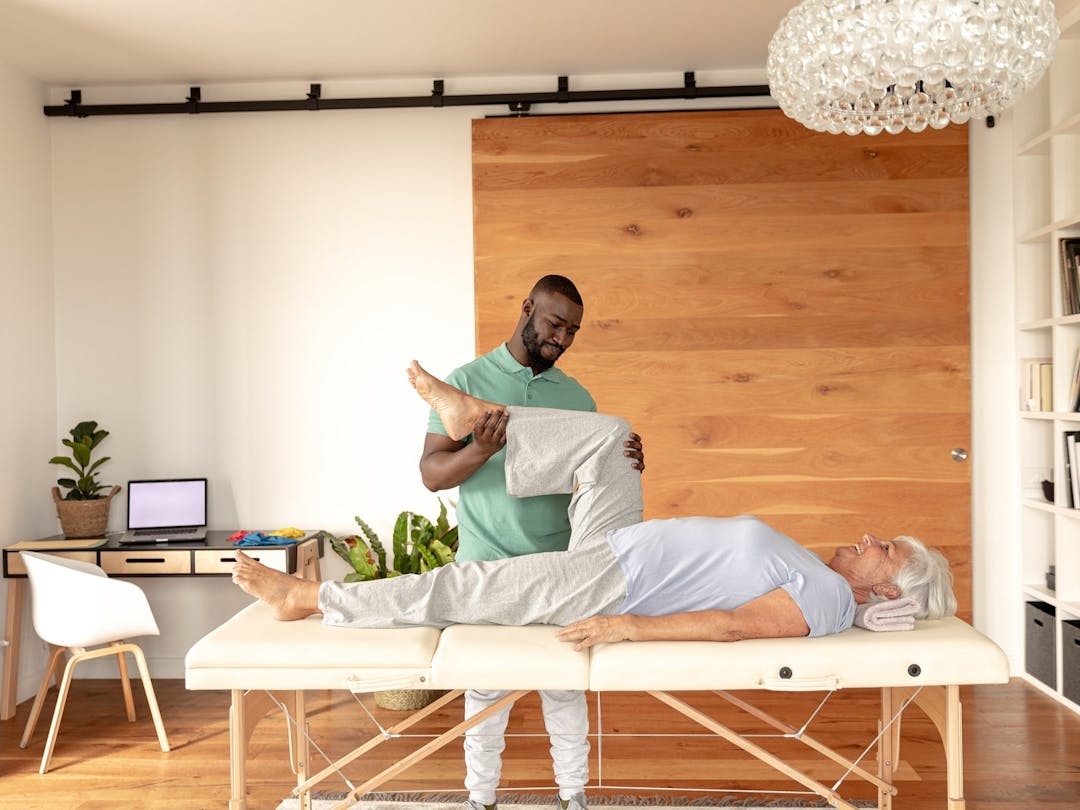
When it comes to your healthcare, the right primary care doctor is key to getting the preventive care you need, as well as successfully managing any chronic conditions you may have.
Your primary care provider (PCP) is a go-to resource for all of your healthcare needs. They can advise you on your care, give you exams, educate you on your individualized health needs, and much more. That’s why it’s critical to choose a physician you can trust.
Sana Goldberg, nurse practitioner and author of “How to Be a Patient,” also recommends finding a primary provider you feel a personal connection with. She told NPR, “Find somebody who is curious, who asks questions that let you know you’re being heard.”
Choosing the right doctor may take time and effort, but the benefits of having one you trust and are comfortable with will be well worth it. Read on to learn more about why you need a PCP and how to go about finding one.
1. Check your provider network
If you have Original Medicare Part A and Part B, you can go to any healthcare provider as long as the provider is contracted with Medicare (and most are).
The right MA plan may help you keep your costs low and ensure coverage of services if you choose an in-network PCP. Your plan should have a list of providers on their website, but you can also call them, or reference the Provider Directory that you received in the mail from your plan.
2. Get recommendations and read reviews
You can start by searching for PCPs in your area, but it can be a helpful place to start by asking friends and family for recommendations. People you trust are excellent resources for finding the right doctor.
Also be sure to read ratings and reviews online from current or previous patients. You can find this information on your favorite search engine, as well as through sites like HealthGrades.com.
3. Make sure the location is convenient
How far is their practice from your home? How easy is it to find parking? Is there public transportation available (if applicable) and how long will it take? Depending on where you live, PCP offices may be plentiful or they may be scarce, but if you have a choice, choose one in a convenient location.
Also consider their office hours. What days and times does the PCP see patients? Can you go after hours or on weekends? Make sure they provide care when and where you need it.
4. Ask if they are accepting new patients
It’s not helpful if you find the perfect PCP but when you call to make an appointment, they aren’t accepting new patients. Once you narrow down your list to one or two options, call their office to make sure they are accepting new patients and how long it generally takes to get in to see the doctor.
5. Learn what hospitals they are affiliated with
Check what hospital the doctor admits patients to, and what hospital(s) they are affiliated with. This can be helpful to know should you ever need to see a specialist or have an inpatient or outpatient procedure performed.
Also ask whether basic procedures like lab tests, X-rays, and other outpatient procedures, are performed at the same facility as the doctor’s office. This can be a significant benefit and convenience.
6. Understand the different care options
Does the doctor offer telemedicine or virtual visits? Online advice or evaluations? Is there an online patient hub or portal that allows you to make appointments, request prescription refills, complete forms, and send messages to your provider? Many patients find these types of services convenient and timesaving, so it can be an added benefit.
7. Make sure they can accommodate your needs
If you want a provider who is specially trained to deal with a particular demographic group or medical condition, make sure the doctor is board-certified in that area. Because your age, gender, life experiences, and medical conditions are all unique to you, it’s important to work with a PCP who can accommodate all of your physical and mental health needs.
You might consider your first interaction with your new PCP as a type of job interview. Don’t be afraid to talk to ask how they can accommodate any concerns you have. You should feel comfortable and confident that they can meet you where you are.
8. Be comfortable with their communication
First, make sure the doctor speaks your preferred language. Otherwise, it may be difficult to completely understand each other.
Once you have your first appointment, answer the following questions: Did you like the doctor’s communication style? Did you feel rushed? Did they take the time to listen to your questions – and answer them thoroughly? Did they dismiss your concerns? Did they explain things in a way you could understand? Did you feel comfortable sharing your concerns with them? Depending on the answers to these questions, you may want to consider finding a different PCP.
Preparing for your first visit with your PCP
When you schedule your first appointment, it can be helpful to request that your medical records be sent to your new doctor before you meet. You may also want to prepare a list of questions and concerns to take with you.
If you can’t get your medical records transferred, or even just so you feel completely prepared, write down as much as you can about your medical history, including any medical or surgical procedures you’ve had, major illnesses, chronic conditions, medications you’re currently taking, and your family’s health history.
Check with the front desk to make sure you bring everything you need to the appointment, such as your driver’s license, insurance card, and any new patient forms they may require. Depending on your plan, you may also be asked to pay a copayment for your visit.
Is Your Doctor a Preferred Provider?
To find a Medicare plan that includes your preferred providers, call us toll-free to speak to a licensed agent. Or, do a bit more research first with our Find a Plan tool. Just enter your zip code, any prescription medications you take, and your providers to start reviewing Medicare plans in your area.
Additional resources
- ClearMatch Medicare: Find a Medicare Plan
- HealthGrades.com
Mon-Thur 9am-7pm | Fri 9am-6pm EST



